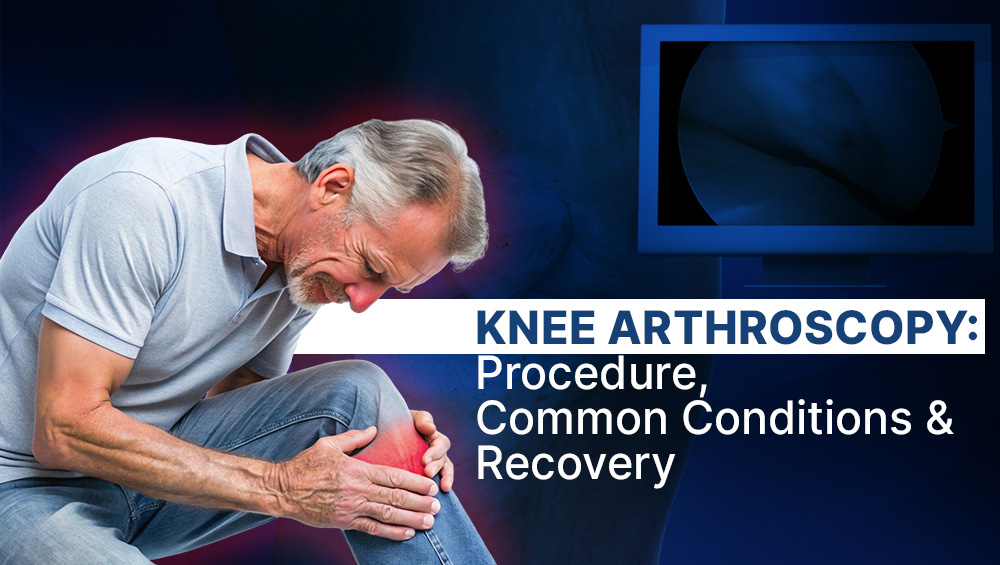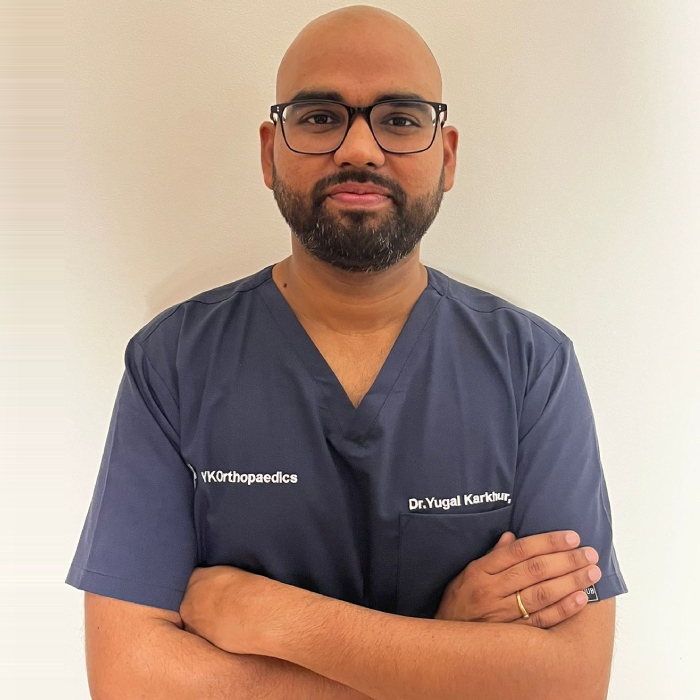The pain in knees can seriously impact your life, preventing you to walk up stairs, your favorite sport, or even out of bed. In the cases when the problem cannot be solved with the help of medication, rest or physical therapy, the doctor may consider the possibility of using knee arthroscopy which is a minor invasive surgery that can be helpful in diagnosing and addressing various issues with the joint. However, what is supposed to be knee arthroscopy? What is it all about? And is it reliable?
Here is all you need to know before you undergo a knee scope procedure.
What is Knee Arthroscopy?
Knee arthroscopy is a medical operation, which enables orthopedic surgeons to see and operate on issues within your knee joint without creating a huge hole. The surgeon penetrates the underlying problem, examines, diagnoses and treats it using the tissue of small cuts through which they insert small tools which are used by a tiny camera (known as an arthroscope).
Since it is minimally invasive, knee arthroscopy surgery is normally accompanied by lesser pain, less time at the hospital and faster healing of the injury as compared to ordinary open knee surgeries.
Why is Knee Arthroscopy Done?
Knee Arthroscopic surgery is commonly suggested by orthopaedic specialists if:
- You have knee pain or swelling that does not have a known diagnosis on imaging
- Non-surgical treatments, including the use of medication or physiotherapy, are of no help
- There's a sensation of mechanical locking, catching or instability in the knee
- There is a suspected injury to a meniscus, ligament (such as the ACL), or cartilage
Arthroscopy of the knee can be used to treat the following injuries.
- Torn Meniscus
- Ligament reconstruction: ACL or PCL
- Removal of the loose bone or cartilage fragments
- Inflamed synovial membrane
- Kneecap (patella) malalignment
- Degeneration of cartilage
Preparing for Surgery
Before you go into knee arthroscopy, your orthopaedic surgeon ought to gauge you thoroughly and gather:
- A thorough bashing of the knees is employed as well
- MRI or X-rays are used to take photos of injured areas in detail.
- You’ll need to provide facts about your symptoms, how active you are, and what problems it has caused.
- When knee arthroscopy is decided upon, instructions about eating, drinking, and medications to avoid before surgery will be issued.
Almost all outpatient procedures are carried out under general anesthesia. Consequently, the person will go home on the day of surgery.
What is the Way the Procedure is Performed?
In a knee scope, the patient is normally given spinal or general anesthesia. The following is what normally occurs;
- The doctor creates 2 to 3 very small wounds near the knee.
- General sterile saline solution is deposited to enlarge the space of the joint to gain visibility.
- It is inserted by an arthroscope (mini camera), about which the live images are displayed on a screen.
- Depending on the discovery, the surgeon will utilize miniature tools in repairing or eliminating damaged tissue.
- The wounds are stitched or a steri-strip is used, and the knee is wrapped.
The whole procedure tends to require 30 to 60 minutes or more, according to the degree of the damage.
Post Knee Arthroscopic Recovery
It is likely to have a faster recovery as compared to traditional open surgery though it will need commitment. So this is what you can expect:
- Relaxation and movement: You will have to sleep a couple of days. First, it could be crutches or a knee brace.
- Physiotherapy: The rehab plan is a necessity. Exercises focused on strengthening commence in a moderate fashion and are managed by a physical therapist.
- Pain and swelling: Pain, swelling, and stiffness is normal and usually is treated with ice, elevation, and pain medication.
- Restoration of activity: Light activities return in one week or two. Minor procedures will take 4 to 6 weeks of complete recovery, and more complex reparations such as ligament reconstructions will require more time.
The time of recovery varies in every patient, therefore pay close attention to your surgeon.
Common Risks
Despite the fact that the knee arthroscopy is a safe procedure, there are certain risks as in every surgery:
- Infection
- Blood clots
- Distension or loss of flexibility
- Damage of the nerves or vessels (rare)
- Recurrent pain or swell
By consulting a qualified or experienced Orthopaedic surgeon in Gurgaon, one can better follow this path and minimize risks.
So Is Knee Arthroscopy the best choice for you?
Knee pain can be a real pain, and conservative measures cannot help you; arthroscopic knee surgery is another step to the right direction. It renders correct diagnosis and concentrated treatment with fewer complications and faster recovery.
For accurate and proper treatment options for you should consult a good orthopaedic surgeon in gurgaon who can explain you the procedure, risks and benefits of surgery and plan a treatment for you.
Conclusion: Talk To The Expert
Knee arthroscopy is a small-cut, high-tech surgery that lets doctors look inside the knee, figure out what’s wrong, and fix a bunch of problems all at the same time. It’s proven to work, it’s gentle enough that most people bounce back quickly, and it’s the go-to choice when other treatments just haven’t done the job to ease pain and get people moving again.
So if you are recommended for knee arthroscopic surgery in Gurgaon and you are looking for expert care from an experienced surgeon, Dr. Yugal Karkhur is one of the best orthopaedic surgeon in Gurgaon. With 14+ years of experience and 3000+ successful surgeries, he offers a unique blend of skill, precision and caring for his patients.
Eliminate pain from movement now — schedule your appointment with Dr. Yugal Karkhur today.


